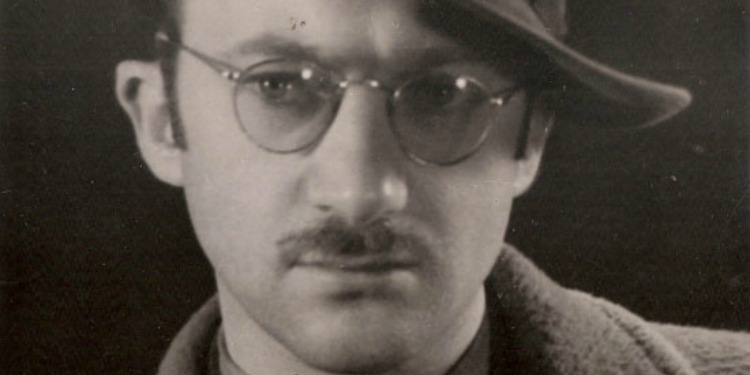The Return of Avraham Sutzkever
The Fellowship | June 7, 2019

Earlier this year, we shared a touching piece about a beloved Jewish poet who was also a hero during the Holocaust. And that was not the first time we told you about Avraham Sutzkever, a man many have called “the greatest Yiddish poet who ever lived.” But now, Asher Weill writes at The Times of Israel to tell us about a movie that’s reintroducting the world to this Holocaust survivor, this man of words, this hero, and this Israeli You Should Know:
Hadas Kalderon is co-author and producer (together with Uri Barbash and Yair Qedar) of the film “Black Honey – The Life and Poetry of Avraham Sutzkever,” a documentary made in 2018 on the life of her grandfather (whom she called Abrasheh at his request – he didn’t like the title of “Saba”). The film won the award for best documentary on the Jewish experience at the Jerusalem Film Festival in 2018 and has been shown at cinemathèques and other venues across the country. If you have a chance to see it, don’t miss it!
I must not drain the black honey
The sweet lunacy of my bones
Even when they kneel before my lips
Take mercy on us
With fire we will quench our thirst.
* * *
Avraham Sutzkever was born in the town of Smorgon (today, Smarhon), in the Russian Empire (later Poland and now Belarus) in 1913. The family spent the years of the First World War in Siberia and after his father, Hertz, died there, his mother, Rayne, brought the family to Vilna (Vilnius), Lithuania. After attending heder and the Jewish high school, Herzlia, he began reading Polish and Russian literature, especially poetry. He became a member of a group of young Jewish intellectuals, calling themselves “Yung Vilne,” including Shmerke Kaczerginski and Chaim Grade – who later became acclaimed Yiddish poets in their own right. The young Avrom, as his friends called him, actually wrote his earliest poems in Hebrew. He married his childhood friend Freydke on the day before war broke out on 1939.
Following Operation Barbarossa, the Nazis occupied Vilna in June, 1941 and the Jews, including the Sutzkever couple and their families were confined to the ghetto. During the incarceration, Sutzkever and some colleagues were ordered by the Nazis to collect important Jewish manuscripts and artworks and hand them over for an institute to be set up in Frankfurt for the “Study of the Jewish Question.” Instead, the self-styled “Paper Brigade” managed to rescue an extraordinary number of artifacts and over 170,000 pages of Jewish materials including manuscripts, memoirs, drawings, poems, diary pages and photographs, and concealed them in hiding places within walls, behind plaster and brick and beneath floors in the ghetto. After the war, when Sutzkever returned to Vilna, much of the written material was retrieved and preserved for 70 years in the crypt of St. George’s Catholic Church in Vilna, with the help of the local librarian and can now be seen in New York.
Sutzkever was not religious in any orthodox sense of the word. Prof. Ruth Wisse maintains that, “one of the things that Sutzkever did was to experience poetry as sanctity. He experienced religion through the possibility of creating poetry, so that when he came into the ghetto, he continued to hold to that higher standard and what gave him the independence was that the Germans could destroy almost everything but nobody could destroy good poetry.” The fact is that Sutzkever wrote a poem every single day in the ghetto. He always attributed his survival to that…
